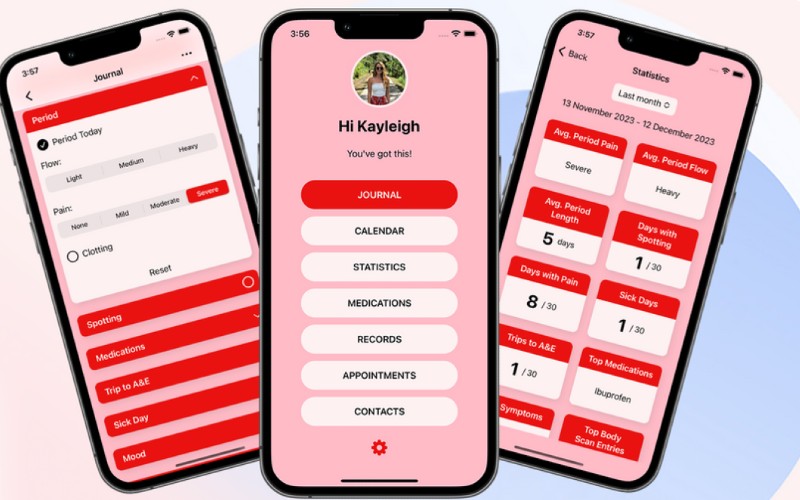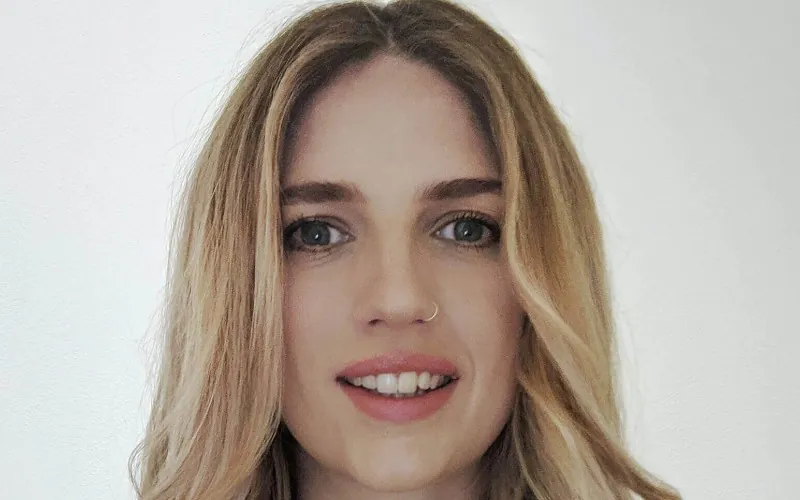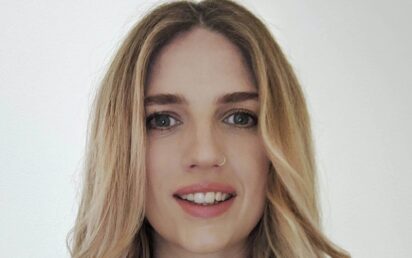A woman whose life has been blighted by endometriosis has taken matters into her own hands by launching an app to help other sufferers.
After spending 15 years in and out of hospital being treated for the debilitating condition, Jemma Bowles decided to use her experiences to launch an app called ENdi to help others manage their condition more effectively.
She said: “At my lowest, I wished I didn’t wake up. This condition changed every aspect of my life – relationships, friendships, work, and mental health.
“I often look at others around me and wonder how it must feel to be so capable and able to function normally. Even the most basic tasks are exhausting for me.”
Endometriosis is a condition where cells similar to those lining the womb grow outside the uterus, often in the pelvic region but sometimes elsewhere in the body. This abnormal growth causes pain, inflammation, and the development of adhesions and scar tissue.
The condition has become more high profile recently with footballer Leah Williamson, Spice Girl Emma Bunton and writer Lena Dunham all speaking about their battles with endometriosis.
37-year-old Bowles decided to launch ENdi to simplify the management of medical records to bring about a quicker diagnosis and better personalised support.
Speaking of her own experiences she said: “I’m not sure exactly when my endometriosis started, but I began having difficult periods around the age of 12. Over time, they became increasingly worse, with heavy blood flow and debilitating pain prompting further investigation from the age of 17.

ENDi app
“When I am at my worst, I am bed-bound for a few days each month. I experience extremely heavy periods, excruciating cramps, and shooting pains down my legs. Additionally, I suffer from a lowered immune system, chronic fatigue, fainting episodes, bloating and random stabbing pains in and around my abdomen.”
Bowles said a lack of awareness meant doctors never took her pain seriously and constantly misdiagnosed her.
“In my late 20s, I would regularly pass out from pain and end up in A&E,” she recalled. “I would usually be told that it was ‘just a period’, that I must have a low pain threshold, and that I should go home, have a bath, and take more Ibuprofen and Paracetamol.
“The most frustrating and inappropriate advice I consistently received was to ‘just get pregnant’ – even when I was single and that was not a feasible or sensible option.”
Bowles worked as a makeup artist in the fashion and advertising industry but started to turn down work as the condition dominated her life.
She said the first time endometriosis was mentioned was in 2015 when her Dad read an article about it and suggested it might be the cause of her symptoms.
“I had to push hard to get my doctor to refer me to a gynaecology ward to begin the diagnostic process,” said Bowles. “However, the wait time was so long that I had no choice but to go private for answers, which I then took back to the NHS to finally get a diagnosis.
“Before the diagnosis, I often felt depressed and at times crazy. I started to believe it must all be in my head and that I was weak or lazy. Receiving the diagnosis of endometriosis validated my pain and struggles. It also introduced me to a community of people who I could relate to, who all faced similar symptoms and experiences.”
Bowles said one of the biggest problems she faced was having to carry a heavy ring binder file containing her medical records around to every appointment.
She’d previously worked with developer Will Nixon to create an app to help stroke patients and joined forces again to produce an app to help sufferers better manage their endometriosis.
“The app aims to simplify the management of medical records, relieving patients of the burden of organising and carrying heavy folders of medical history,” she explained. “This makes it easier for patients to clearly illustrate how endometriosis affects them.
“We designed, created, and built everything ourselves. We believed it was crucial for this app to exist, so we developed it around our other jobs.”
The ENdi app has a series of features including personalised insights; medication reminders; an appointment tracker; and a medical history log.
ENdi is available now on the App Store, with an Android version coming soon. After a one-month free trial the cost is £3.49 per month or £35.99 per year.
Bowles wants ENdi to become the leading endometriosis app on the market.
“As we continue to grow, we hope to collaborate with medical and scientific professionals to facilitate quicker diagnoses and improve patient care,” she said.
“Additionally, we are looking to seek investment to accelerate our growth and enhance our offerings. Ultimately, we aspire to sell the app and use the proceeds to continue developing innovative solutions that help people.”


